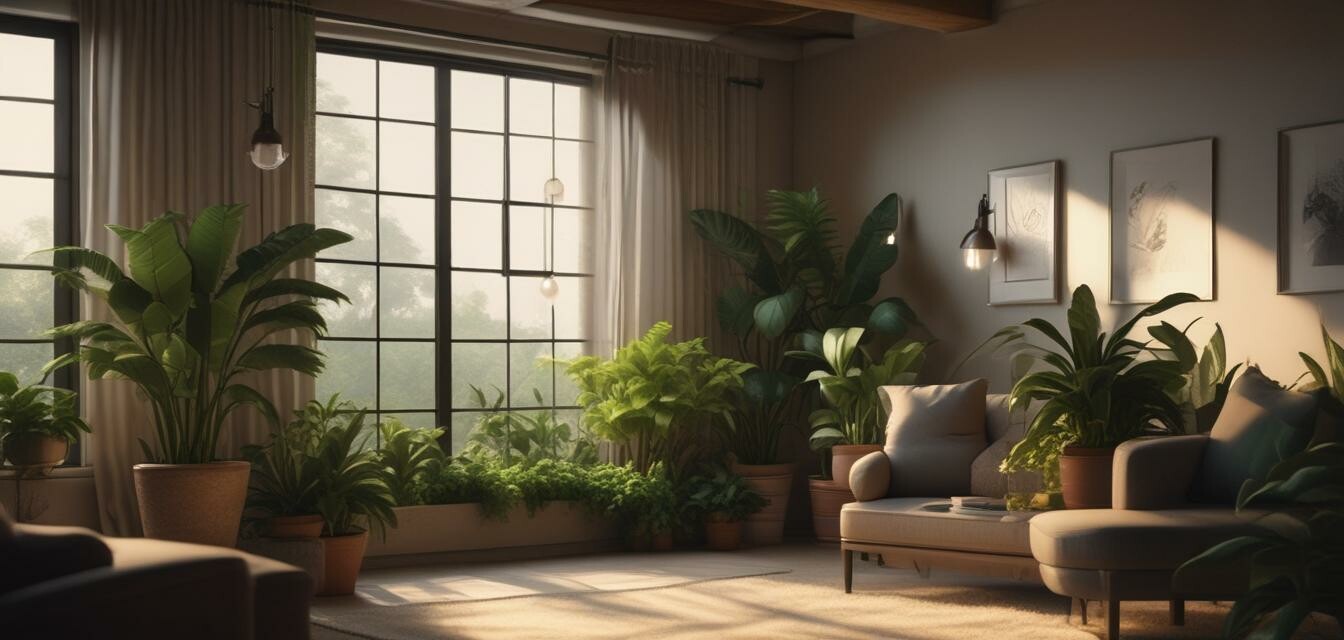
The Impact of Houseplants on Mental Health
Key Takeaways
- Houseplants can significantly enhance mood and emotional well-being.
- Studies indicate a positive relationship between indoor plants and reduced stress levels.
- Incorporating greenery in living spaces leads to increased productivity and creativity.
- Accessibility to plants can foster a sense of accomplishment and responsibility.
- Low-maintenance houseplants are ideal for busy individuals seeking mental health benefits.
The role of houseplants in our lives has transcended mere decoration. As we delve deeper into how they can impact our mental health, numerous studies highlight the benefits of greenery in indoor spaces. In this article, we discuss the latest research on how houseplants contribute to mental health, improving mood, reducing anxiety, and enhancing overall well-being.
Houseplants and Mental Well-being
Research suggests that the presence of houseplants can improve mental health in various ways. Here are some key insights drawn from recent studies:
| Study | Findings |
|---|---|
| Kaplan and Kaplan, 1989 | Nature exposure, including houseplants, helps reduce mental fatigue and stress. |
| Bringslimark et al., 2007 | Participants reported higher levels of well-being in environments with indoor plants. |
| Park & Mattson, 2009 | Plants in the workplace led to reduced anxiety levels and improved job satisfaction. |
| Rosenberg et al., 2017 | Gardening activities promote relaxation and mindfulness, contributing to better mental health. |
The Psychological Benefits of Houseplants
Integrating houseplants into living and working spaces can lead to numerous psychological benefits. Below are specific ways in which they positively affect mental health:
- Mood enhancement: Houseplants are known to brighten spaces and elevate spirits. Their vibrant colors and textures create a welcoming atmosphere.
- Reduced anxiety: Caring for plants can provide therapeutic effects, easing feelings of anxiety and stress.
- Increased productivity: Studies have shown that workplaces with plants often report higher productivity and creativity levels.
- Sense of accomplishment: Taking care of plants can nurture a sense of responsibility and achievement.
- Connection with nature: Houseplants can help reconnect individuals with nature, even in urban settings.
Tips for Choosing the Right Houseplants
Beginner-friendly plants for mental health benefits
If you’re new to houseplants, consider the following low-maintenance varieties:
- Spider Plant
- Pothos
- Sansevieria (Snake Plant)
- ZZ Plant
- Peace Lily
Incorporating Houseplants into Your Space
Creating a serene environment filled with houseplants can greatly enhance your emotional well-being. Here are practical tips on where to place them:
- Living Rooms: Add a few tall plants in corners to draw the eye and break up the space.
- Bedrooms: Consider smaller plants on your bedside table for a calming night-time atmosphere.
- Workspaces: Place a plant on your desk to improve focus and reduce stress during work hours.
- Bathrooms: Opt for moisture-loving plants like ferns to liven up the area.
- Kitchens: Use herb gardens for both decoration and functionality.
Conclusion
Incorporating houseplants into our homes and workspaces goes beyond decoration; it plays a significant role in enhancing mental health. From mood elevation to stress reduction, the benefits are numerous. For more insights, check our guides on plant care and explore our selection of low-maintenance houseplants perfect for enhancing your space.
Pros
- Low maintenance options are available.
- Natural air purifiers that improve indoor air quality.
- Enhances aesthetics of any living environment.
- Accessible activities promote mindfulness.
Cons
- Some plants may require specific lighting conditions.
- Allergies or sensitivities may arise from certain species.
- Overwatering can lead to brown leaves or root rot.
Explore More Trends
Stay updated with the latest trends in the houseplant world by visiting our news and trends section. Join fellow enthusiasts and discover emerging plants, innovative care techniques, and styles that elevate indoor gardening.

